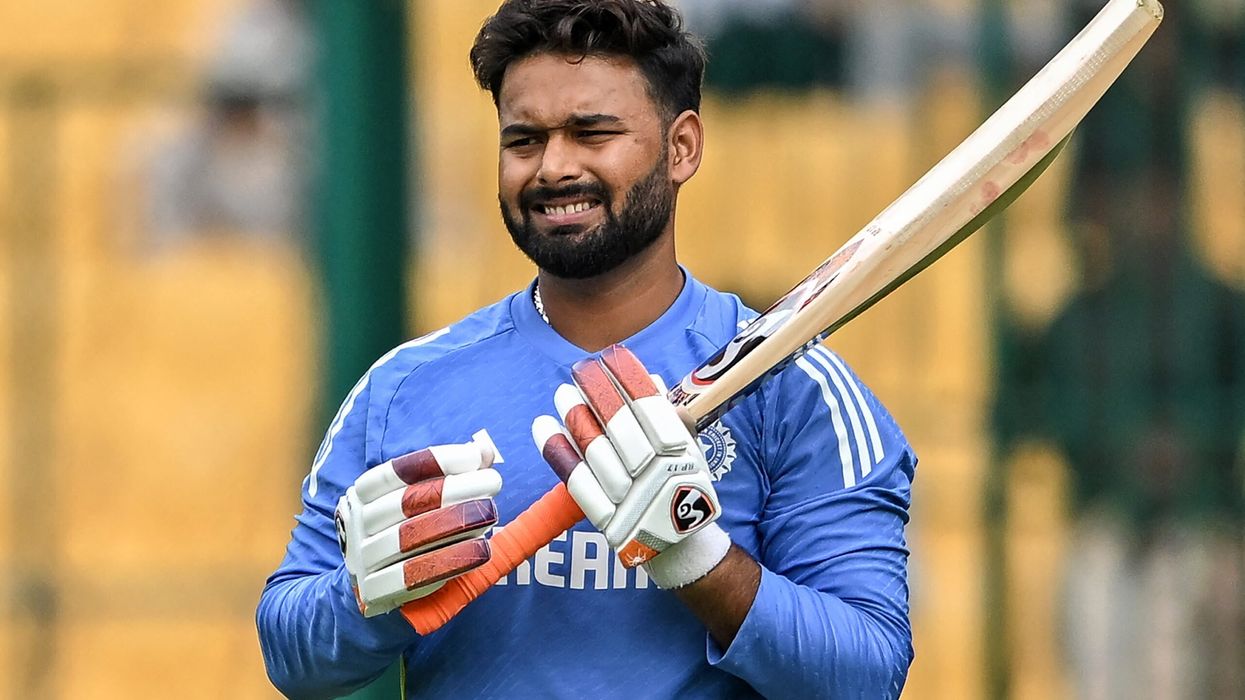INDIAN wicketkeeper Rishabh Pant became the most expensive player in Indian Premier League (IPL) history on Sunday (24), fetching a record £2.54 million at the auction held in Jeddah, Saudi Arabia.
Teams competed fiercely over 577 players during the two-day event, with top international and domestic cricketers on offer.
Pant’s record-breaking bid came from the Lucknow Super Giants, surpassing the previous record set earlier in the day when the Punjab Kings acquired Shreyas Iyer for £2.52m. Iyer, who led the Kolkata Knight Riders to an IPL title this year, had previously held the record for the highest bid at the auction.
Punjab's new coach, Ricky Ponting, expressed his excitement about Iyer joining the team and hinted that he may be made captain. "I have worked with him three or four years at Delhi, and obviously he is a championship-winning captain from last season," Ponting said. "We are delighted to have him back."
Lucknow Super Giants owner Shashwat Goenka praised Pant’s cricketing pedigree, saying, "Rishabh's history in the IPL and in the sport of cricket is unparalleled in terms of his skill and what he brings to the table. We are very excited to have him as part of the squad."
Pant returned to competitive cricket earlier this year after recovering from a serious car accident in December 2022. He parted ways with the Delhi Capitals after captaining the team in the last IPL season.
The auction continued to break records, with Indian all-rounder Venkatesh Iyer sold to Kolkata Knight Riders for £2.23m following a bidding war with Royal Challengers Bengaluru.
Other key sales:
Indian quick Arshdeep Singh started the auction with a bidding war, going to Punjab Kings for £1.69m.
Australian pacer Mitchell Starc, released by Kolkata Knight Riders, was bought by Delhi Capitals for £1.10m.
England white-ball captain Jos Buttler was picked up by Gujarat Titans for £1.48m.
Other notable buys included New Zealand’s Trent Boult (£1.17m to Mumbai Indians) and Afghanistan spinner Noor Ahmad (£0.94m to Chennai Super Kings).
Some players, like Australian David Warner and England’s Jonny Bairstow, went unsold in the first round but may be acquired later in the auction.
The IPL auction, held abroad for the second consecutive year, is part of efforts to expand the league's global profile. Last year’s auction took place in Dubai, and this year’s venue, Jeddah, aims to tap into Saudi Arabia's migrant worker fan base.
The IPL remains a major revenue source for Indian cricket, generating over £8.73 billion annually for the Indian economy.
(With inputs from AFP)




